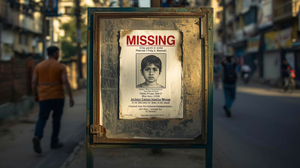A Common Phrase With Unseen Impact
Most parents have said it at some point: “Don’t cry.” It’s often said out of love, panic, or the instinct to soothe. We want to protect our children from pain, calm them down quickly, or help them “be strong.” But in doing so, we may unintentionally invalidate their feelings.
For a child, crying is not weakness; it’s communication. When that expression is repeatedly shut down or brushed off, it sends a message: Your emotions are not welcome here.
What Emotional Dismissal Looks Like
Emotional dismissal isn’t always loud or aggressive. It can be quiet, seemingly harmless, and woven into everyday parenting. Statements like:
- “There’s nothing to cry about.”
- “Big boys/girls don’t cry.”
- “Stop crying or I’ll give you something to cry about.” These phrases are often said to calm a situation, but they signal to the child that their natural emotions are wrong, excessive, or a nuisance.
Over time, children may learn to bottle up feelings, avoid vulnerability, or feel ashamed of emotional expression, especially sadness, fear, or frustration.
How It Affects Emotional Development
When a child is told not to cry, they aren’t learning how to regulate emotions; they’re learning to ignore or suppress them. This can affect:
1. Emotional Intelligence:
Children need to identify, name, and process their feelings to develop empathy and resilience. Dismissal blocks that process.
2. Self-Worth:
If their feelings are constantly shut down, children may start to believe that something is wrong with them for feeling deeply.
3. Communication Patterns:
They may stop coming to parents with their problems, assuming they’ll be ignored or judged. This silence can grow into emotional distance during teenage years.
Boys, Girls, and Cultural Pressure
In many Indian families, boys are especially discouraged from crying. Phrases like “ladke rote nahi” (boys don’t cry) are deeply ingrained in cultural parenting. This teaches boys to associate tears with shame, even though all humans, regardless of gender, feel pain and need healthy ways to express it.
On the other hand, girls may be called “too sensitive” or “dramatic,” encouraging them to hide feelings out of fear of being labeled. In both cases, the child loses the freedom to feel authentically.
What Children Need Instead
1. Validation Over Solution:
You don’t always need to fix the problem immediately. Sometimes, just saying “I can see you’re really upset” is enough. It tells the child their feelings are seen and accepted.
2. Offer Comfort, Not Control:
Instead of “Don’t cry,” try:
- “I’m here.”
- “It’s okay to feel sad.”
- “Take your time, I’m listening.” These simple phrases offer emotional safety without shutting down the experience.
3. Model Healthy Expression:
Children mimic what they see. If you handle your own emotions with calm acceptance, saying, “I’m feeling overwhelmed, I need a moment”, your child learns it’s okay to express and manage feelings.
4. Teach Emotional Vocabulary:
Instead of rushing past emotions, help your child name them: “Are you feeling scared, disappointed, or hurt?” Giving words to emotions builds emotional intelligence and reduces inner confusion.
The Long-Term Benefits of Emotionally Aware Parenting
Children who grow up in emotionally safe environments tend to become:
- More confident in expressing themselves
- Better at navigating relationships
- Less reactive and more reflective during stress
- Able to empathize with others without losing their own voice
Allowing tears doesn’t make children weak; it makes them resilient. Processing emotions fully is what helps children bounce back with strength and clarity.
Final Takeaway: Emotions Are Not Inconveniences
Crying is not something that needs to be “fixed.” It’s a signal that something matters deeply to your child. Whether it’s a broken toy or a hurt feeling, each tear is an opportunity to connect and teach emotional resilience.
Next time your child cries, instead of silencing them with “Don’t cry,” pause and listen. Let them feel. Let them know it’s safe. Because when a child feels emotionally accepted at home, they carry that strength into the world.








Be the first one to comment on this story.